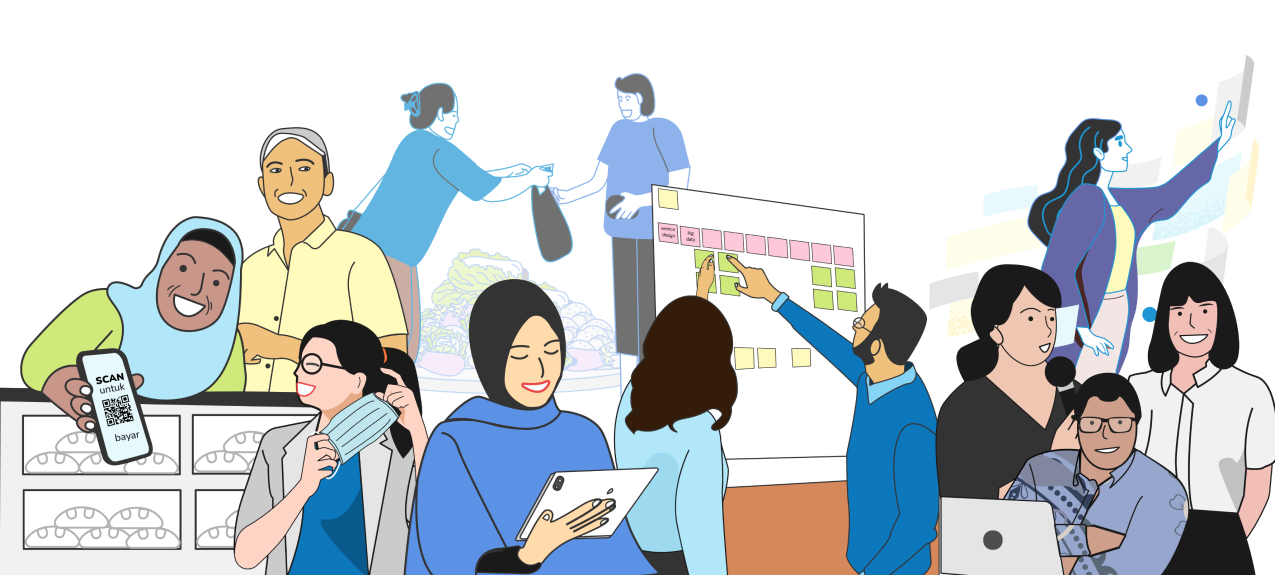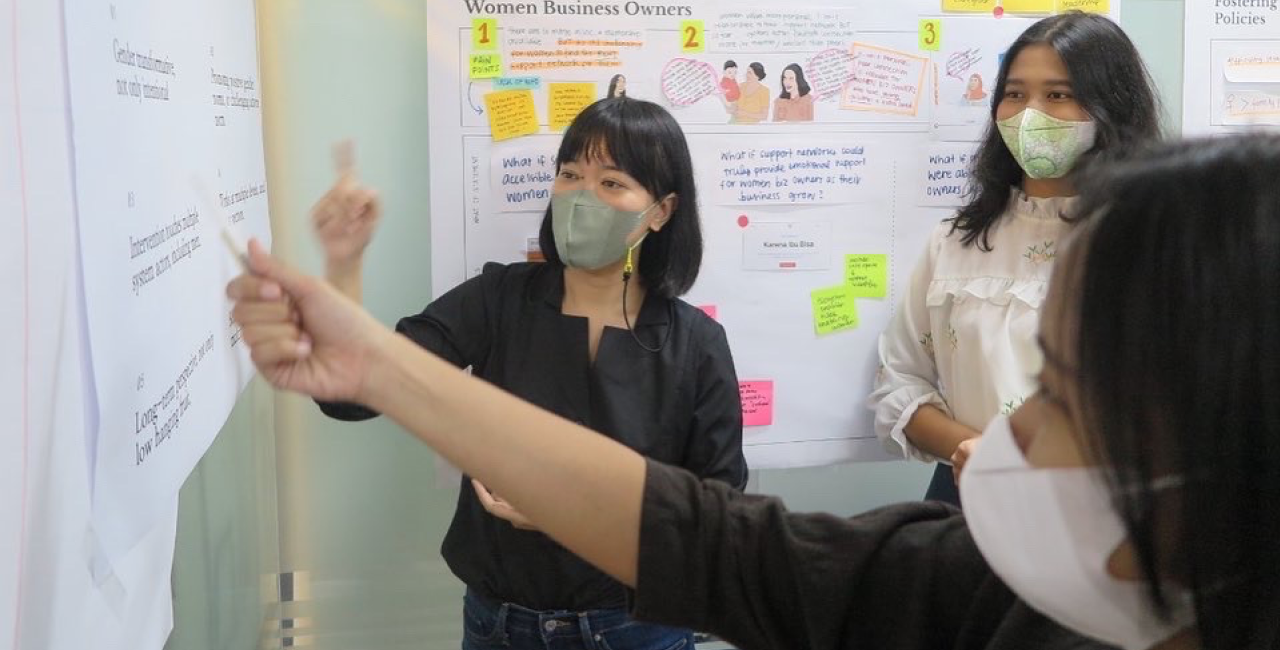22
A Journey of Progress and Possibilities

United Nations in Indonesia



SUMMARY


The existing inequalities that were revealed and exacerbated during the pandemic require concerted efforts to be effectively tackled. Development efforts will only be sustainable if all individuals, regardless of their identity or socioeconomic background, can benefit from it and can contribute to creating a society where inclusion is the norm. Bearing this in mind, PLJ looked at how our efforts contribute to an inclusive future. Within our scope of inclusive development, we consider how our work incorporates gender, disability, and social inclusion, but we also tackle aspects in the broader environment that can contribute necessary changes to create the futures we want.
Through all our activities, our intent is to extend learning beyond a project cycle, and to understand the impact of our work we reflect on our results framework which identifies three main impact spaces based on the added value to our stakeholders—our methodological impact, systemic impact, and operational impact.
In the next section, we take you on a reflective journey of our contributions to change in 2022. We highlight the ways in which our work results in impacts that shape a more inclusive world where progress is driven by data and systemic changes, such as through transformative approaches to policy making and strategic partnerships for inclusive development.
To address increasingly complex and intersectional challenges requires the adoption of innovative approaches to design effective policies, programs and interventions that are more inclusive, data-driven, and anticipatory. In 2022, through our new and existing partnerships with counterparts, PLJ applied our growing capabilities for data innovation, strategic foresight, behavioral science and results to effect changes in the Indonesian policy making sphere. Driven by the UN Secretary-General’s ‘Common Agenda’, our application of this ‘Quintet of Change’ contributes to the UN 2.0 transformation to offer more relevant and systems-wide solutions that address the challenges of our modern world. Some of the more tangible impacts of the Lab’s work are most evident in our contributions to transforming policy making approaches in three areas: systematic approaches to data analytics, anticipatory/futures thinking, and tailored design and service delivery.


to Data Analytics

& Service Delivery

Policy Making
The complexity and intersectionality of the development challenges we aim to address means it’s no longer possible for any entity to work alone to solve a problem. The Indonesian G20 Presidency theme states that we need to “recover together, recover stronger”, which also aligns with the UN Secretary-General’s message in Our Common Agenda on building upon multilateral action to produce inclusive and sustainable solutions to tackle global issues.
At the Lab, we are cognizant of the fact that much of our work would not be possible without the support of our strategic partners, and in the last few years, our role has evolved from a ‘big data innovation lab’ to an ‘analytical partnership accelerator’. Recognizing this important shift in our role, we sought to not only strengthen our partnerships for inclusive development, but also the importance of investing in partner capabilities to generate better impact. This is evidenced by our collaborations bolstering the internal UN ecosystem, as well as further afield in our contributions to regional and global discourse through knowledge sharing initiatives.

PLJ has had a steadily growing presence not only in Indonesia but also the Asia Pacific region since its inception in 2012. We have commenced a range of partnerships and supported various innovative initiatives in Myanmar to Sri Lanka, South Korea to Cambodia, Singapore to Malaysia to Vanuatu, among other locations. Over the years and alongside the ever-changing nature of the development context, the Lab has also progressed to a natural evolution point bringing us to the next phase of our journey.










































